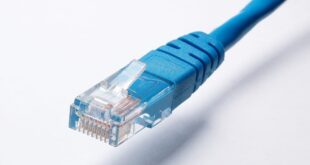The Unfortunate Reality: Cyber Espionage
Technology advancements have always impacted different aspects of our lives. Let’s say it: technology brings people closer, and notably contributes to making the world a better place. However, cyber espionage is one of the dark sides of cyber security that proves how technology has two sides and how risks are inherent when users take advantage of technologies.
Espionage is one of the most censored subjects whenever governments imposed sanctions. However, when it comes to invasions, espionage has always remained the best strategy. In the old times, spies traveled with handwritten documents and were not guaranteed safe delivery means of information. In 2021, although spy secrets are not handwritten anymore, cyber espionage has come in to change their game; a game where servers and cloud networks as enablers of modern-day espionage seem safer and straightforward.
Defining Cyber Espionage
Looking for a more straightforward way of explaining cyber espionage? Consider cyber criminals infusing malicious code into an organization’s or business server to gain access to confidential documents or essentially track skimming activities. The results: steal sensitive data and make financial gain based on intellectual property discoveries.
It’s important to note that espionage at this time isn’t limited to easy exploitation settings. Companies should be providing extensive-level training and monitoring capabilities for staff, associates, commercial allies, and other agents with joint venture access—alongside hacking attempts from anyone at the area-entry point and malware action against digital subplots.
Cyber Espionage from Energy Blackouts:
While it doesn’t threaten a network breach company’s shareholder base at the moment, cyber espionage turning against the energy targets of a nation appears to become even dangerous and possibly drawing negative online cyber-attacks propaganda against energy-based infrastructures.
Maintain Correct Personnel Confidentiality:
Following from the previous hypothesis, your recruiting protocols might oversee some redundancies that could directly expose your protection layers against cyber espionage.
More to Explore:
Despite the increasing volume of reported cyber espionage cases every day, some experts must still believe there could be some gainsout of increasing defense on assets to handle usage drawbacks, internet connectivity technology scares, and interference fears based on extending monitoring and analytics architecture scope.
Conclusion:
Based on sheer caution about business targets which should remain hostile in day today states of espionage competitions among countries, governments should deliberate deploying complementary security deterrence layers. The level of business edge-value coming from any breakthrough and future convenience technologies truly exemplify the merit of money-saving strategic partnerships.
 Mind Uncharted Explore. Discover. Learn.
Mind Uncharted Explore. Discover. Learn.



